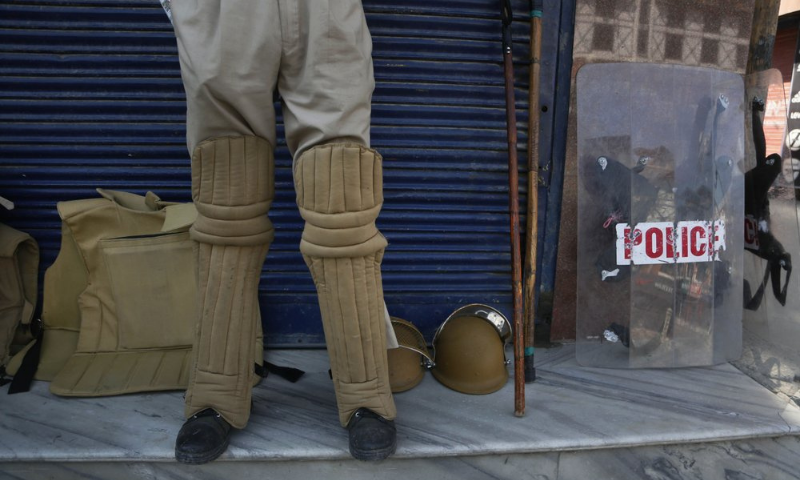SRINAGAR: Police in occupied Kashmir said on Friday that they arrested one of their own officers and dismissed her for obstructing a counterinsurgency operation in the disputed region.
The officer livestreamed a cordon and search operation by Indian forces in southern Frisal village on Wednesday with the intent of disrupting the search operation, police said in a statement.
It said the officer resisted the search party, turned violent and made statements glorifying actions of Kashmiri fighters. She was arrested and fired, the statement said.
The dismissed officer was a Special Police Officer. Such officials are lower-ranked personnel recruited mainly for counterinsurgency operations.
UN rights experts voice concern new laws may change demographic composition of disputed region
Indian law enforcement officers repeatedly have been implicated in helping Kashmiri fighters, who for decades have waged an armed campaign demanding independence for their disputed region or a merger with Pakistan.
When the latest armed campaign against Indian occupation began in 1989, police initially fought against it. But then many of the personnel began sympathising with the local fighters, who have massive public support. Dozens of them later joined the fighters, rising to become militant commanders.
In several cases, the officers were accused of having ties with the fighters. In 1992, two policemen and a paramilitary soldier were arrested for allegedly helping fighters bomb Srinagar’s police headquarters in an attack that killed one officer and injured several others.
In response, India set up a police counterinsurgency network that is widely feared and accused by many Kashmiris and human rights groups of abuses such as summary executions, torture, kidnappings and rape. It was those actions the officer may have been protesting against when she livestreamed the raid on Wednesday.
Police said they are investigating if the woman has links with the fighters.
Meanwhile, UN human rights experts have made public a communication to the Indian government in which they expressed concern over rights of people in Kashmir after New Delhi stripped the region’s semiautonomous status in 2019 and imposed a slew of administrative changes through new laws.
